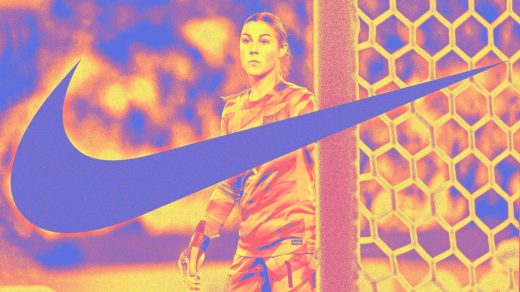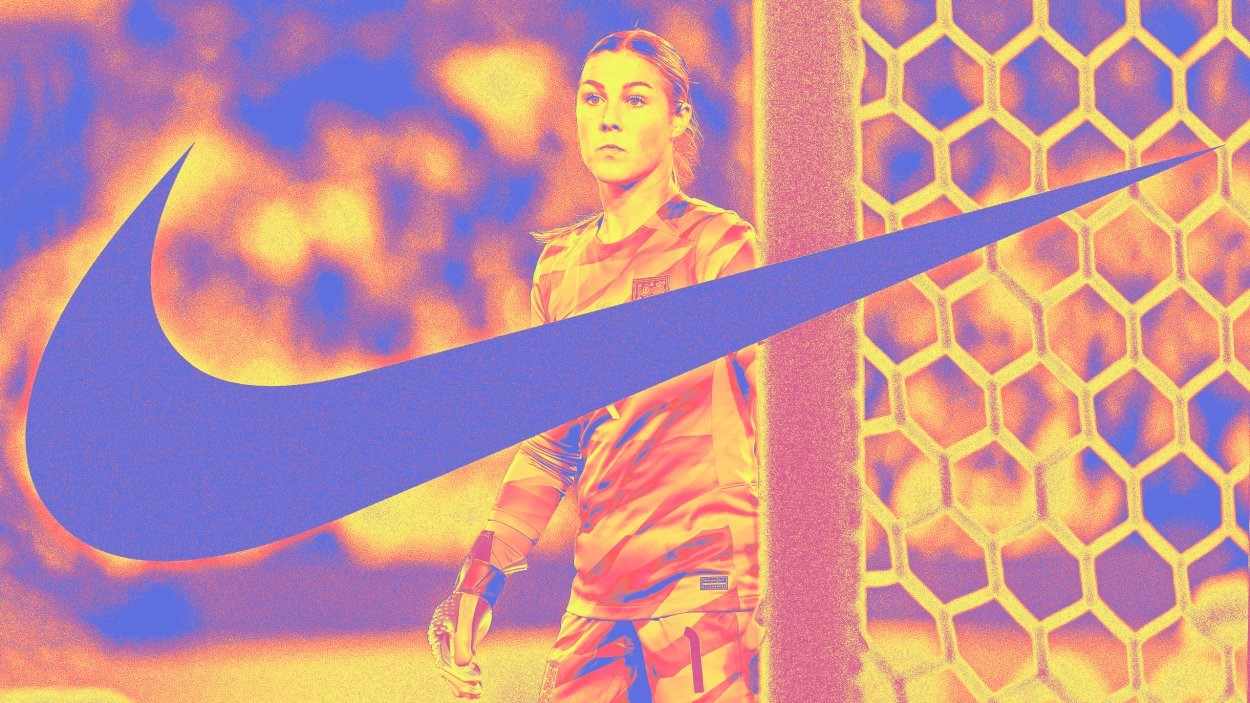Nike finally agrees to make Mary Earps jerseys—but the brand damage had already been done
Branded is a weekly column devoted to the intersection of marketing, business, design, and culture.
Of all the great matches at this year’s Women’s World Cup, none was as surprising as England goalkeeper Mary Earps’ public-opinion showdown with sports megabrand Nike over, of all things, fan merch. And now it looks like Earps has prevailed. And in taking the L, Nike has offered up a reminder to brands that aim to serve sports fans about who is really in charge.
Specifically, the conflict involved Nike’s initial failure to produce replicas of the keeper’s green shirt for her (many) supporters to buy, despite Earps being chosen as the tournament’s best goalie. After batting away the controversy for weeks, (September 14, 2023) Nike announced that it had “secured limited quantities of goalkeeper jerseys for England, U.S., France, and the Netherlands to be sold through the Federation websites,” referring to international soccer governing body FIFA. “We are committed to retailing women’s goalkeeping jerseys for major tournaments in the future,” it added.
This was quite a directional turnabout from Nike’s initial attitude, but appears to have been overmatched. Earps—“Mary Queen of Stops”—was already a fan favorite. Playing for Manchester United, she was named FIFA’s top women’s keeper last year, and is known for her “at times” demonstrative competitive spirit. A fast-growing online petition cajoling Nike and Adidas to sell shirts for fans of Earps and other female goalkeepers picked up steam, topping 150,000 signatures, as England made it to the Cup final. England’s tabloids have had a field day at Nike’s expense, and even The New Statesman—a British magazine better known for progressive politics than for encouraging multinational corporations to boost the world merch supply—has demanded Earps jerseys.
In fairness to Nike, and its rivals like Adidas and Puma, predicting demand for product connected to events like the World Cup is a tricky business: The impossibility of knowing which teams will thrive and what heroes might emerge has to be balanced against the time frame required by global supply and distribution chains. They are bound to guess wrong sometimes, ending up with merch nobody wants—a serious problem for Nike lately, as excess inventory has dinged its share price.
And, as in this case, the wrong guess can leave the brand without merch that is evidently in demand. Presumably, this is even harder with keeper “kits” (i.e., uniforms), which are completely different than what the rest of the team wears.
The original response from Nike, which sponsors England’s national team (nicknamed the Lionesses), was a statement saying it is “committed to women’s football, and “the passion around this year’s tournament,” adding: “We hear and understand the desire for a retail version of a goalkeeper jersey and we are working towards solutions for future tournaments.” This, to put it mildly, did not satisfy critics, some of whom escalated the merch skirmish by producing their own Earps gear, from DIY shirts to knockoffs and indie-brand riffs (including one emblazoned “Just Did It”) to Earps’ own online shop.
One person who successfully foresaw the demand for Mary Earps merch was Mary Earps, who actually addressed the issue back in July. Asked by a reporter about her Lioness kit being unavailable to the public as the tournament got underway, she acknowledged that it was “hugely disappointing and very hurtful,” and a situation she had been “fighting behind closed doors.” She even offered to help fund the production, she added. “My shirt on the Manchester United website was sold out last season.”
As much as this has focused on Earps and Nike, it seems to be symptomatic of something broader: In general, the sportswear giants make male keeper jerseys available (albeit in limited numbers) but rarely women’s keeper kits. Even if there’s a spreadsheet somewhere that claims to justify that pattern, it’s a bad look for any sporting brand these days. Women athletes from basketball to soccer to tennis are drawing growing audiences and devoted fans, who notice whether they’re being seen by big brands. Or not.
For Nike in particular, the passive response seemed off-key. It’s not the first company to wrestle with unexpected demand or a short production-time horizon: See Mattel’s Kenough hoodies and Lionel Messi Inter Miami jerseys from Adidas (delayed by uncertainty over where he would choose to play), both currently available for pre-order. That’s not ideal, but it’s better than nothing—and certainly better than a vague pledge of “solutions” in the “future.” Moreover, the company has in recent years endured controversies about its treatment of some women athletes and employees. Given that Nike’s broader history has established it as one of the more fearless and even audacious brands ever (standing by Colin Kaepernick when that was actually a bold thing to do, for example), its initial tepid shrug at Earps fans was puzzling, to put it nicely. Earps reacted to Nike’s initial statement by posting: “Nike, is this your version of an apology/taking accountability/a powerful statement of intent?,” punctuated by a pissed-off-looking emoji.
By midweek, it must have been clear to Nike that it wasn’t going to win this one: It had to drop the platitudes about “conversation” and just do it. And its new statement announcing that “limited quantities” of keeper jerseys had been “secured” admitted its mistake. “We recognize that, during the tournament, we didn’t serve those fans who wished to show their passion and support to the squad’s goalkeepers,” it said, acknowledging “the unprecedented passion and interest in women’s football this year.” The statement added: “We are committed to retailing women’s goalkeeping jerseys for major tournaments in the future.”
In all, this wasn’t Nike’s finest performance. But in the end, sometimes it’s better to admit defeat, learn what you can from a thorough drubbing, and focus on the future.
(26)



